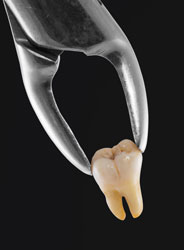Swollen gums are one of the most common oral health issues I have treated in my entire career as a dentist. Gum swelling can be a sign of a more serious oral symptom, but many patients tend to ignore it, thinking that it will not last for long. However, I always recommend that patients seek the help of a professional as soon as they learn about the condition. Read on and learn more about the causes of swollen gums and what you should do to alleviate the pain and discomfort.
What Are The Common Causes Of Swollen Gums?
- Gingivitis is the most common cause of swollen gums. It can range from mild inflammation to severe gum damage, leading to tooth loss if left untreated.
- Certain medications have the side effect of causing swelling in the gums.
- Poor nutrition is also to blame for gum swelling, particularly lack in Vitamin C. Not eating a healthy diet can lead to a wealth of oral issues.
- Switching brands of toothpaste or mouthwash can also lead to gum disease. This may be due to a reaction between a certain ingredient in the new brand and your gum tissues, leading to inflammation.
What Should You Do If You Have Swollen Gums in Rochester, NY?
As I mentioned earlier, always contact your dental professional when you see signs of gum swelling. While waiting for your appointment, here are some things I recommend to help you feel better and minimize the swelling.
- Rinse your mouth with salt water. Simply mix a pinch of salt in a glass of water and wash your mouth thoroughly with the solution. This is an easy way to alleviate pain caused by gum swelling.
- Avoid caffeinated beverages and soda. These drinks can further increase the irritation in your gum tissues. Also stay away from alcohol and tobacco.
- Eat healthy. Add fruits and vegetables to your daily diet, especially those rich in Vitamin C.
- Practice good oral hygiene. Brushing your teeth and flossing regularly is the best way to recover from gum disease and prevent other oral health problems.
- Don’t ignore the problem. Simply dismissing it as something you can endure will not help. Visit a professional to determine the exact cause of your swollen gums and whether it’s a symptom of a more serious health condition.
While there are treatments available for gum disease, I still recommend taking steps to prevent the disease in the first place. Practicing good oral hygiene, eating healthy and visiting your dentist regularly may be just what you need to maintain the health of your teeth and gums.

 At our Rochester dental office we understand that even if you take extreme care of your teeth, and go out of your way to perform proper dental hygiene, accidents will happen.
At our Rochester dental office we understand that even if you take extreme care of your teeth, and go out of your way to perform proper dental hygiene, accidents will happen.